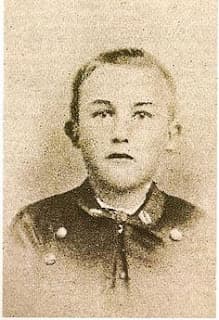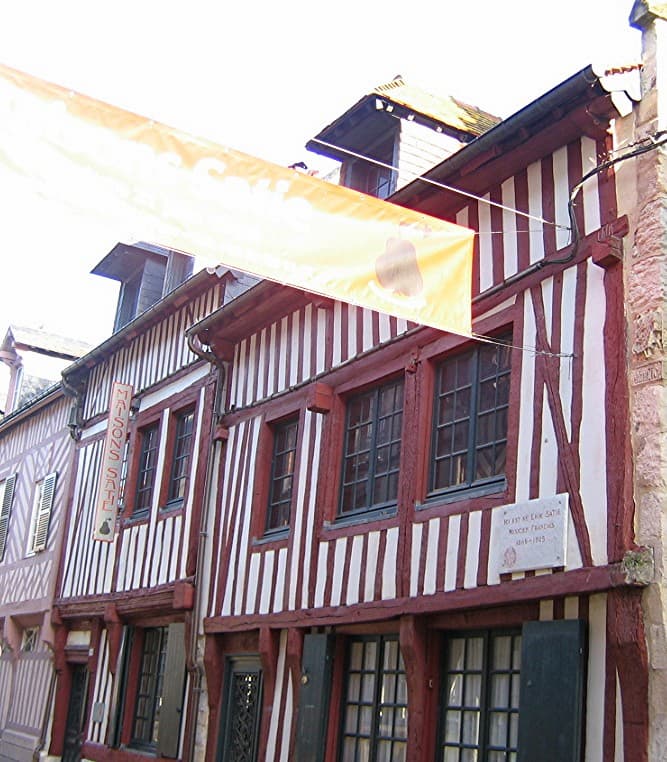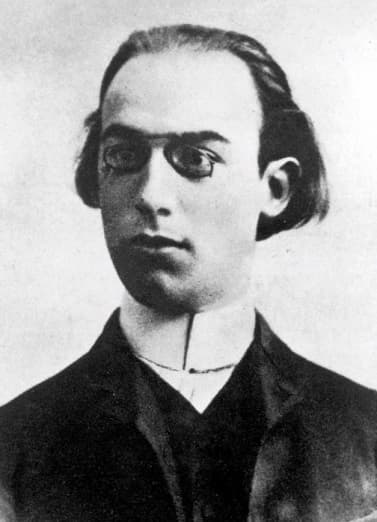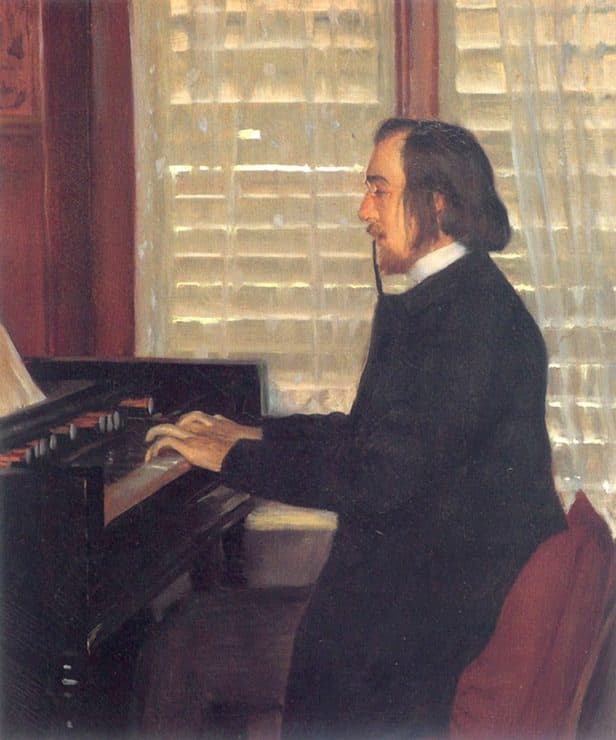Eric Alfred Leslie Satie, who signed his name Erik Satie after 1884, was born at nine in the morning of 17 May 1866 in the coastal town of Honfleur. He was the son of a Scottish mother, née Jane Leslie Anton, and a French father, Alfred Satie. His parents were actually married in London, and they honeymooned in Scotland, “under whose gray skies Erik was, in all probability, conceived.” As a noted biographer writes, “If Scotland remained a kind of spiritual home to Satie, it was Honfleur that nurtured him through the impressionable years of his early childhood and young adolescence.”
The Satie Family

Erik Satie as a child
The Satie family briefly settled in Paris, but after the death of his mother, Erik, together with his younger brother Conrad, was sent back to Honfleur. Satie was introduced to the organist Vinot who worked at the church of Saint-Léonard, and who was a graduate of the École Niedermeyer in Paris. Young Satie was introduced to Gregorian chant, and at the age of 12 he rejoined his father in Paris. On 4 November 1879, Erik along with thirty-seven other candidates, attempted to pass the piano examination at the Paris Conservatoire. “His performance of a Dussek concerto movement did not qualify him for a place in the main class, but he was accepted into the preparatory class of Émile Descombes.”
Erik Satie: Elégie (Rilke Ensemble; Gunnar Eriksson, cond.)
Erik Satie: “The Laziest Student in the [Paris] Conservatoire”

Maisons Satie in Honfleur
For the next seven years, Satie spent in what he called “a sort of local penitentiary with no beauty on the inside nor the outside.” He did take the biannual piano examinations with generally indifferent success. When he played at his first examination, Ambroise Thomas, the director of the Conservatoire described him as “gifted but indolent.” Six months later, his teacher noted “a certain grace and beauty of tone in the playing of his young student, but asserted Satie was the only student in the class who did not work hard enough.” Further examination reports used terms like “passable, mediocre, and feeble,” and by 1881 he was described as “the laziest student in the Conservatoire.” Having failed to impress his examiner, Satie fell victim to Article 60 of the Conservatoire, stating, “A student was to be dismissed if, after three years, he was not recommended for the institution’s annual piano competition.” Satie was dismissed in 1882, but readmitted by 1885, and dismissed again shortly thereafter.
Erik Satie: 4 Ogives (Jan Kaspersen, piano)

Paris Conservatoire
Many years later, Satie offered this blazing assessment of the Paris Conservatoire. “People, in general, seem convinced that only the official Establishment in the rue de Madrid can inseminate musical knowledge. Good for them; but I still ask myself, with hands clasped, why we musicians are obliged to receive a State education when painters and writers are free to study as and where they want. I have always said that there is no such thing as Artistic Truth, no single Truth, I mean. The one imposed by Ministers, a Senate, a Chamber and an Institute revolts me and outrages me, even though basically I feel indifferent about it. With one voice, I cry: Long live Amateurs!” During the mid-1880s, while he was still living with his father and stepmother, Satie discovered literature and became a voracious reader. He read Dumas, Flaubert, Vachette, Péladan, and Hans Christian Andersen, “a curious mixture of literary personalities that would reinforce his already noticeable nonconformist tendencies.”
Erik Satie: 3 Mélodies (Barbara Hannigan, soprano; Reinbert de Leeuw, piano)
Satie’s Resentment Against His Stepmother

Erik Satie, 1884
Satie harbored great resentment against his stepmother Eugénie Barnetche from the very beginning. She was an accomplished pianist who had studied with Georges Mathias and the famous organist Alexandre Guilmant. However, Madame Satie-Barnetche was also a composer of pallid salon pieces.

Santiago Rusiñol: Portrait of Eric Satie at the harmonium
A biographer writes, “her works, all for piano solo, appeared between 1882 and 1897, and although Alfred Satie was her first publisher, she appears to have had a variety of publishers, which suggests a considerable demand at the time for her particular brand of parlor entertainment.” Alfred Satie, who had set up his own music publishing business in 1883, was lacking formal musical training. Nevertheless, he dabbled in composition and his “modest talent leaned toward the music-hall song.” Satie’s first known efforts at composition are clearly not derived from the musical style of Wagner and Franck, or from the tradition of French lyric opera. Rather, these early works are “unquestionably cut from the same cloth as the humorous and sentimental songs of his father and the shallow salon pieces of his stepmother.”
For more of the best in classical music, sign up to our E-Newsletter
Erik Satie: 3 Sarabandes (Alessandro Simonetto, piano)

Many thanks for the illuminating bio of satiety. The most unique composer of all!